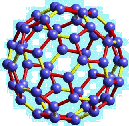Two weeks ago at the EntreTech seminar on the Internet of Things, good buddy Chris Rezendes told an anecdote that blew me away, both because it was such a powerful demonstration of the IoT’s potential to transform our world and because it reminded me of one of the IoT’s “Essential Truths.”
Chris mentioned that Grundfos, the world’s largest pump manufacturer, now includes sensors that report on the operating status of pumps at remote wells that dot Africa. They did it so that monitoring the wells would allow customers to improve maintenance of the wells and do it more economically, dispatching repair crews only when needed.
Nice, but not the cool, transformational part!
As you may know, Africans (primarily the women) often walk hours each day to-and-from their villages in order to get vital water — often carrying big jugs on their shoulders for many miles. Some dear soul at Grundfos realized that the same data that helped their customers improve management of the wells could also let the women know when there was adequate water flow at the well to make it worthwhile to make the trek (rather than having to walk to several wells before actually finding water — an all-too-frequent occurence). So Grundfos made the data available to designers who were able to create an app that the women could read on their phones before leaving their village to determine where to go. It cut the average amount of time the women spend per day hunting for water from 8 hours to 3 — a dramatic savings that allows them to spend their time on more productive and less tiring activities! Isn’t that wonderful?
The second lesson I drew from the Grundfos data story was one that I first detailed two years ago in my book Data Dynamite: I argued that in the new era of “democratizing data,” that managers need to learn to routinely ask a new question when they examine a data set:
“WHO ELSE COULD USE THIS DATA?”
With the vast quantities of data that will be created by the IoT, the question is more relevant than ever!
This question doesn’t come easily to many managers. For so long, the secret to economic success was proprietary information that I had and you didn’t (for those with long memories, proprietary operating systems were the secret to the “Massachusetts Miracle” of the 1980s, when companies such as DEC and Prime created entire ecosystems around their proprietary systems).
Now, however, the future lies with open standards and shared data, that will actually create more wealth by sharing information because other people with a particular insight or critical need will realize that your data can be combined in mashups with other data sets to create whole new insights and valuable information.
Asking this question can also be a powerful tool to get rid of information silos within organizations, on the realization that many people in many departments can now potentially share the same near-real-time data at the same time, both improving coordination of activities such as supply-chain management and improving decision-making.
It’s time to wipe away the last vestiges of the old way of creating wealth and instead ask ourselves “who else could use this data?” The chances are that, whether inside your organization or — more daringly — outside it, you’ll be able to find other potential users who can cooperate to create new services and revenue streams as well as increasing operating efficiency.
So who else could use your Internet of Things data?
PS: I’ll be offering more of these “Essential #IoT Truths” on an occasional basis in the future, prodded by Chris Rezendes, who finally hammered it into my thick skull that all of my years in consulting on communications in a wide range of field meant that my unique contribution to the IoT can and should be to help companies with the human communication aspects of the IoT that often tend to get obscured by our emphasis on machine-2-machine communication. Thanks, Chris (I plan to develop consulting services in this area to be offered in conjunction with INEX Advisors)! I’ll be speaking on this topic at a Meetup in Providence later this month — details to follow.

